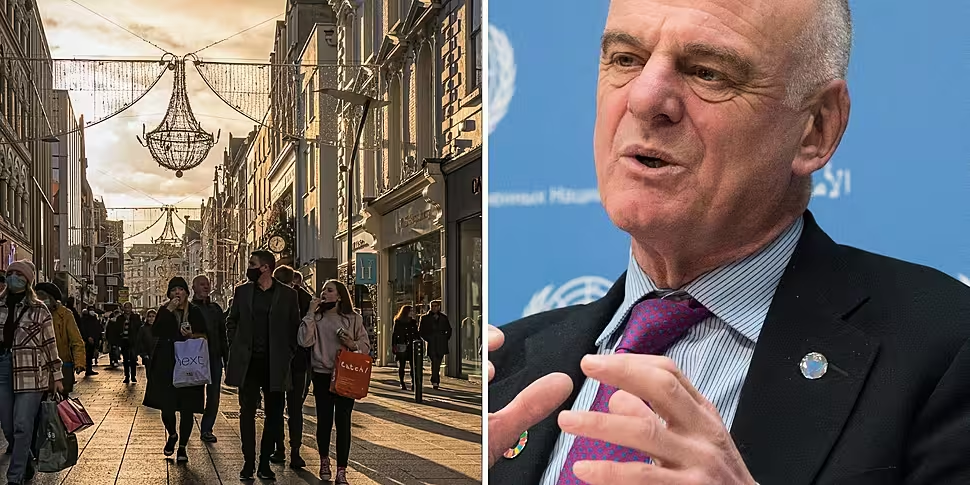The WHO's special envoy on COVID-19 says he understands why Ireland has changed its isolation rules for certain people with symptoms.
Dr David Nabarro was speaking as changes were announced to isolation and testing rules on Thursday.
People over the age of three and under 40 with symptoms will not be sent for a PCR test unless they have a positive antigen swab.
While those aged 13 and older, who are at least seven days post booster vaccination or those who have completed their primary vaccination course and have had COVID-19 infection within the previous three months, should self-isolate for a minimum of seven days from the commencement of symptoms.
Dr Nabarro told Late Breakfast it is important that any such restrictions do not hurt the economy.
"What we believe in the World Health Organisation is that we need to be super careful now not to impose such strong health ideals - the ideals that are associated with really very, very low risk - that at the same time we risk leading to paralysis of society, paralysis of economies.
"Everything involves really weighing up the options either way.
"Yes you want to try to make sure that people are isolating for long enough to reach a point where they're no longer infectious.
"On the other hand, you want to be sure that you get as many people as possible back to work - or back into circulation - as you can, and try not to end up with everything just coming to a halt."
He believes such decisions around testing and isolation are a compromise.
"These represent very careful efforts by politicians to find a compromise - and we understand that, we accept that.
"We believe, this is two years into a pandemic, the kind of decisions that individual Government's ought to be making - making them based on the best possible science.
"So we are not taking a firm line on whether or not it's right for a country to be reducing their isolation period".
Ireland 'right in the forefront'
On vaccine inequity, he says Ireland has a role to play to persuade larger countries to do the right thing.
"After all, none of us is safe until everyone is safe - this virus could mutate anywhere and form new variants.
"And that means that really we need an organised, world-wide campaign using the vaccines that are available, developing new vaccines... in order to get everybody having a fair chance for vaccination.
"Ireland has been right in the forefront of trying to see fairness of vaccine distribution.
"I applaud the efforts of your Government, your Taoiseach and others - and I hope we can see more of this pressure.
"Unless it's fair, it's not right - and unless it's right, we won't get on top of this pandemic.
"I really believe that it's countries like Ireland that can play a major role in bringing larger nations up to confronting the reality that we need to do this fairly".
Asked if he has hope for 2022, Dr Nabarro says: "I have so much hope - but it's not just simple, blind hope based on no evidence.
"I have hope because I've been working on really big issues over the last few years... and I see evidence from so many countries of real, positive, brave leadership for the world.
"I just continue to worry about a few of the nations where it appears that populism has taken control, and that leaders are just simply looking at ratings in their polling in certain kinds of newspapers and are using that to guide policy.
"It's so short-sighted".









